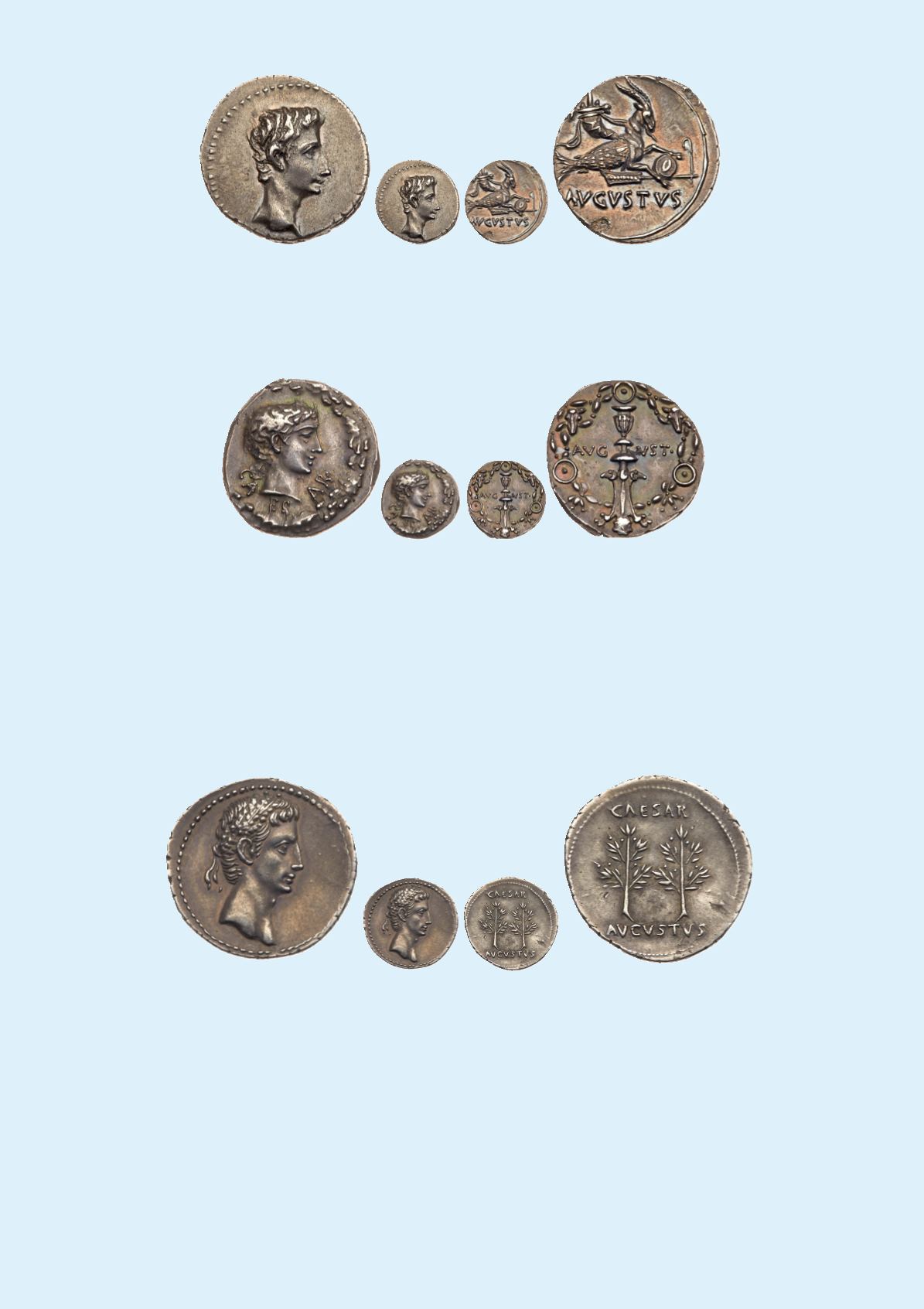

430
Augustus, 27 B.C. - AD 14. Silver Denarius (3.59 g). Minted in Spain, struck c. July 18 B.C. - 17/16 B.C. Bare
head of Augustus facing right. Rev.Capricorn right, holding a globe attached to a rudder, a cornucopiae
above, AVGVSTVS in exergue. (BMC 347; C.21; RIC 126). Attractively toned. Extremely Fine. $2,500
Beautifully Toned Denarius of Augustus/Gaius
431
Augustus, 27 B.C. - AD 14. Silver Denarius (3.87 g). Uncertain mint, struck 17 B.C. CA-ES-AR, young
bare head (of Gaius Caesar, or Augustus?) facing right; all within an oak-wreath. Rev. AVG-VST, orna-
mented candelabrum; all within a floral wreath decorated with bucrania and paterae. (RIC 540; BMC 684).
Beautiful old cabinet tone with iridescence, a little wear to the highest point of obverse, a very attractive
example. Extremely Fine.
$4,000
Ex E. J. W. Hildyard, FSA Collection, purchased for £4/15/-
Ex Baldwin’s Auction 55, 7 May 2008, lot 2013.
Exceptional Quality Augustus Denarius of Elegant Style
432
Augustus. Silver Denarius (3.72 g), 27 BC-AD 14. Superb EF. Caesaraugusta (?), ca. 19/8 BC. Head of
Augustus right, wreathed with oak-leaves.Rev. CAESAR AVGVSTVS, two laurel branches. RIC 33a; BMC
352; RSC 47. Lovely old cabinet toning with hints of iridescense. A fantastic portrait of great style struck
on an exceptionally large flan. Superb Extremely Fine.
$7,500
Ex Alberto Campana Collection (NAC 64, 17-18 May 2012), 1033;
Ex Rauch 82 (23 April 2008), 203
Ex Exceptional Roman Denarii Coll. #3104.
When Octavian was awarded the honorary title of Augustus in 27 BC investing him with supreme power, he was also given the
right to decorate his door posts with laurel branches, a sign of martial victory, and the
corona civica
, an oak-wreath symbolizing
the saving of a Roman life. In the case of Augustus, the laurel branches signified his victory over Mark Antony and Cleopatra
at Actium, and the
corona civica
was awarded for saving the life of not one citizen but of many thousands when he successfully
ending the civil wars. On this coin Augustus is portraying wearing the oak wreath crown - which occurs only occasionally on
Roman coins - which by law he was required to do at every public gathering.



















